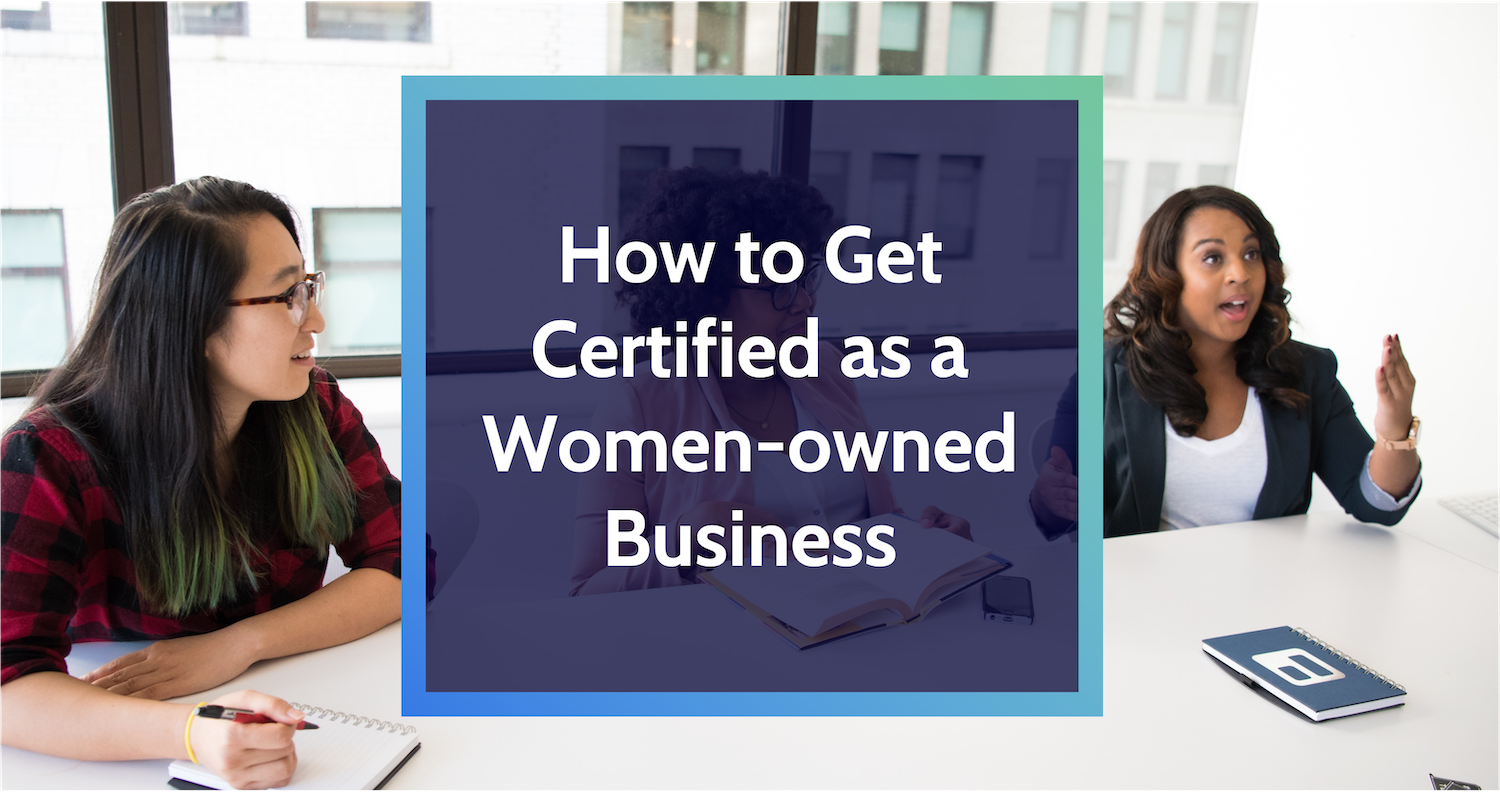How to Get Certified as a Women-owned Business
Thanks to ongoing policy initiatives and growing entrepreneurial spirit, women-owned business are becoming a much bigger component of the US economy. According to a 2019 report by American Express, there are roughly 13 million women-owned businesses in the US, and they generate nearly $1.9 trillion in revenue. The rate at which women founders launched new businesses between 2014 and 2019 also far outpaced all businesses on average—with a substantial 21% increase vs. 9% for all businesses. During the same period, the number of businesses owned by minority women increased by a staggering 43%.
But despite this positive trend, women-owned businesses unfortunately still fall behind in many key metrics that are vital to their long-term success and ability to grow for years to come. As an example, a report by the Senate Small Business & Entrepreneurship Committee found that women receive only 4.4 percent of the total dollars awarded each year in conventional small business loans.
The Benefits of Getting Certified
Getting certified as a women-owned business is an important step in shattering the glass ceiling that can hold so many back from greater levels of success. One benefit of getting certified is increased visibility, as your company may appear in databases where organizations search for businesses like yours to partner with. This can lead to entirely new opportunities that may have been previously out of reach, like access to valuable networks where organizations seek out companies like yours.
Additionally, certifications open the door to qualifying for specific government or private industry contracts. Often times, organizations will set aside annual budgets to do business with particular types of companies (typically small businesses) for their projects and initiatives. Depending on your goals and business type, winning a federal government contract can mean the difference between stagnation and explosive growth.
Certification Types
The two types of certifications for women entrepreneurs include:
- Women’s Business Enterprise (WBE): This certification is used to qualify for opportunities with private sector companies as well as state and local governments.
- Women-owned Small Business (WOSB): This certification is used to qualify for opportunities with federal government agencies. If you meet the criteria for being economically disadvantaged, there is also a subcategory to this certification called Economically Disadvantaged Women-owned Small Business (EDWOSB). This can lead to further federal government opportunities under this designation.
Connecting with private sector companies for business opportunities takes time and networking. Fortunately, federal opportunities can be searched out in several ways. One way is by working with the SBA’s Women-owned Small Business Federal Contracting Program.
Generally, to qualify for WOSB certification, your company must:
- Be a small business based on the SBA’s requirements (size of the company may vary by NAICS code)
- Be at least 51 percent owned and controlled by women who are U.S. citizens
- Have women manage day-to-day operations and make long-term decisions
How to Get Certified as a Women-owned Business
The SBA plays a central role in becoming a certified WBE, WOSB, or EDWOSB. And the process is now even more streamlined based on the release of the new beta.certify.sba.gov website.
From this website, you will be able to:
- Review checklists that can help answer questions before to applying
- Explore your eligibility for certification
- Reach out to SBA program experts
- Create an account and start your application
If you have additional questions about the process and how to get started, check out the FAQ sheet on WOSB/EDWOSB certifications.
Additional Resources for Women-owned Businesses
As a women-owned business, know that you are never alone in your journey toward success. There are a vast amount of resources to assist you throughout the process and connect you to funding, opportunities, and entrepreneurs or mentors willing to help. A few of these resources include:
- The SBA’s Office of Women’s Business Ownership (OWBO)
- Small Business Development Centers (SBDCs)
- Women’s Business Centers (WBCs)
- SCORE
- Ascent, the SBA’s new online learning platform for women entrepreneurs
- GrantsforWomen.org
- Grants.gov

